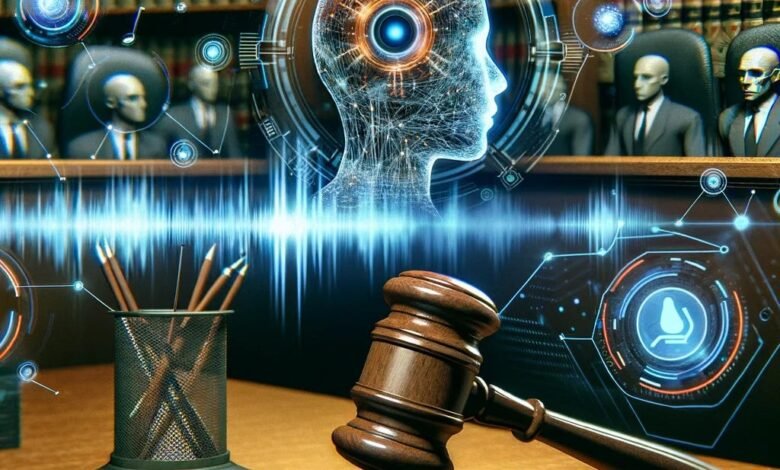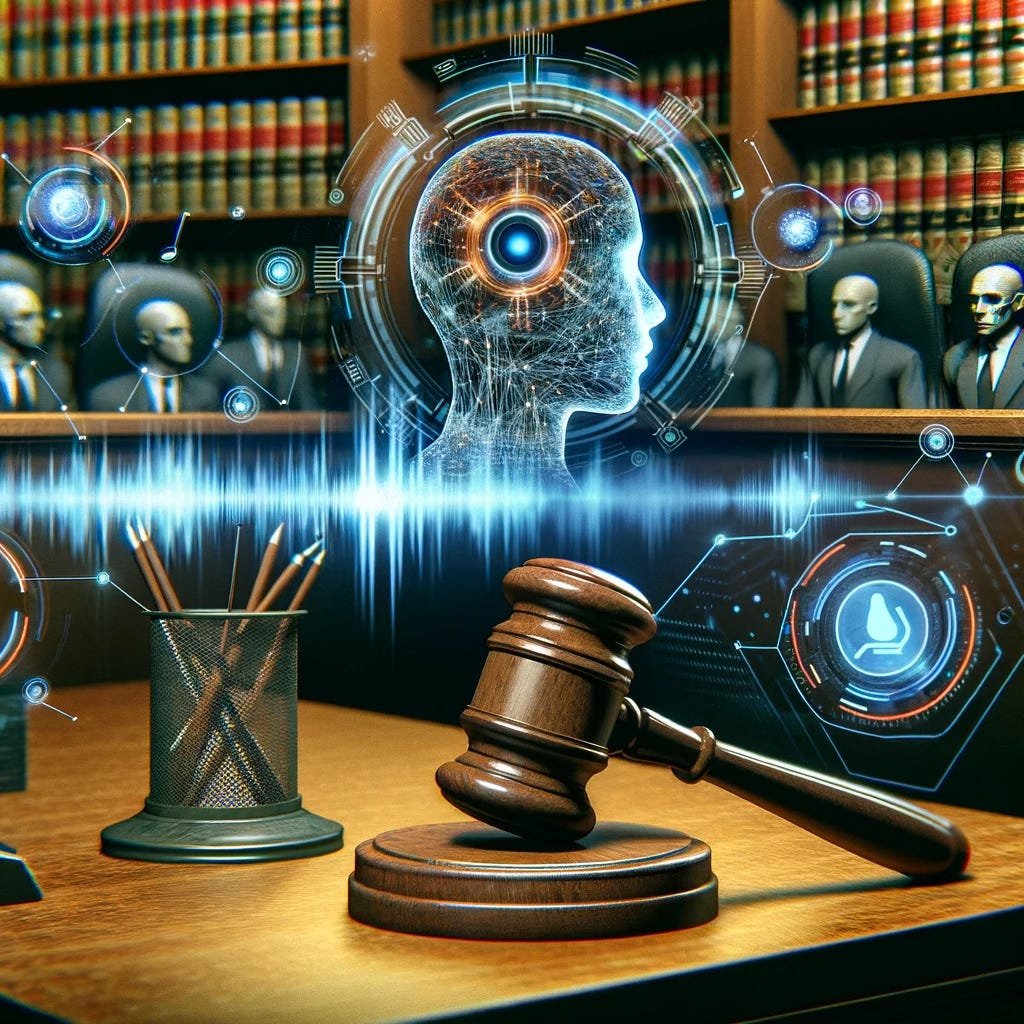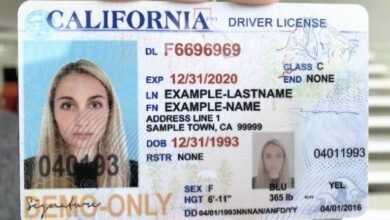Voice Cloning Laws: Understanding Legal and Ethical Implications

Voice cloning technology has taken the world by storm, enabling lifelike replication of human voices. From virtual assistants to entertainment and education, its applications are numerous. But as this technology grows, so do the legal and ethical concerns surrounding it. In this article, we’ll explore voice cloning laws, the challenges they address, and how they aim to protect individuals’ rights.
What is Voice Cloning?
Voice cloning uses artificial intelligence to replicate a person’s voice. By analyzing audio samples, the technology can produce a near-identical synthetic voice. While its benefits are undeniable, such as giving voice to those who’ve lost theirs, the potential misuse has raised concerns about privacy, consent, and intellectual property.
Voice cloning laws aim to set boundaries to ensure responsible use while addressing these concerns.
Also Read: Spyware Penalties
Why Do We Need Voice Cloning Laws?
The rise of voice cloning presents a double-edged sword. On one hand, it fosters innovation; on the other, it creates room for abuse, such as identity theft, fraud, or deepfake scams. Voice cloning laws are essential to:
- Protect individuals’ privacy.
- Prevent unauthorized voice replication.
- Establish accountability for misuse.
- Encourage ethical innovation in the AI sector.
Without robust laws, the balance between innovation and individual rights is hard to maintain.

Current Landscape of Voice Cloning Laws Worldwide
1. United States
In the U.S., there is no specific federal legislation governing voice cloning laws, but existing statutes cover related concerns.
- Copyright Law: Protects the original voice recordings but does not explicitly address cloned voices.
- Right of Publicity: Many states, like California, grant individuals the right to control the commercial use of their voice, making unauthorized replication potentially illegal.
- Fraud and Impersonation Laws: Voice cloning used for fraud, such as fake calls, is punishable under criminal laws.
2. European Union
The EU takes a stricter stance on privacy. The General Data Protection Regulation (GDPR) offers protection against unauthorized use of personal data, including voice. However, no specific laws exist solely for voice cloning.
3. Asia and Developing Regions
Voice cloning legislation is in its infancy. Some countries have data protection laws, but explicit voice cloning laws remain underdeveloped.
Ethical Implications of Voice Cloning
The ethical debate often intertwines with legal considerations. While voice cloning laws can deter misuse, ethical questions remain:
- Consent: Should explicit consent be mandatory before cloning someone’s voice?
- Ownership: Who owns the cloned voice—the individual, the developer, or the company?
- Impact on Society: How do we address the potential for scams and misinformation using deepfake voices?
Answering these questions is crucial for developing laws that address both legal and moral concerns.
Industries Affected by Voice Cloning and Legal Challenges
1. Entertainment
Voice cloning is reshaping the entertainment industry by bringing back the voices of late actors or modifying voiceovers. However, using a deceased actor’s voice without permission can violate voice cloning laws related to publicity rights.
2. Advertising
Companies are increasingly using voice cloning for personalized marketing campaigns. Misuse can lead to legal battles over unauthorized usage.
3. Telecommunications and Banking
Voice cloning poses a significant threat in industries reliant on voice authentication. Legal frameworks must ensure companies and individuals are protected from fraud.
Recent Cases Highlighting the Need for Voice Cloning Laws
Several high-profile cases demonstrate why specific voice cloning laws are necessary:
- Deepfake Scams: Criminals have used cloned voices to impersonate CEOs, defrauding companies of millions.
- Unauthorized Voice Use: Celebrities have sued companies for using their voice without consent, citing violations of publicity rights.
These cases underline the urgency for stronger regulations.
How Voice Cloning Laws Can Evolve
To effectively regulate voice cloning, laws must address the following:
1. Consent Requirements
Explicit consent should be mandatory before cloning any voice. This aligns with privacy laws and ensures individuals retain control over their voice.
2. Clear Ownership Rights
Laws should define ownership of a cloned voice, preventing misuse and ensuring accountability.
3. Accountability for Developers
Companies developing voice cloning technology must follow ethical guidelines and comply with voice cloning laws to avoid liability.
4. Global Standards
Since voice cloning is a global issue, international collaboration is essential to create unified standards.
The Future of Voice Cloning Laws
As AI evolves, so must legislation. Emerging trends in voice cloning laws include:
- AI Transparency: Requiring developers to disclose when a voice is synthetic.
- Legal Penalties: Introducing harsher penalties for unauthorized use.
- Consumer Education: Raising awareness about the risks and safeguards of voice cloning.
FAQs About Voice Cloning Laws
1. What are voice cloning laws?
Voice cloning laws regulate the use of AI-generated voice replication, focusing on consent, privacy, and preventing misuse.
2. Is voice cloning legal?
Voice cloning is legal if done with the individual’s consent. Unauthorized cloning may violate privacy, publicity, or intellectual property rights.
3. Can I sue someone for using my cloned voice without consent?
Yes, depending on the jurisdiction, you can file a lawsuit for unauthorized use under privacy or publicity laws.
4. Do voice cloning laws vary by country?
Yes, different countries have varying degrees of regulation. Some focus on privacy, while others address ethical use.
5. What industries need to comply with voice cloning laws?
Industries like entertainment, advertising, telecommunications, and AI development must adhere to these laws.
Final Thoughts
The rise of AI technology has made voice cloning more accessible, but with great power comes great responsibility. Voice cloning laws are vital to ensure the ethical and legal use of this technology. As the global community works toward unified regulations, understanding and respecting these laws will be crucial for individuals and industries alike.
By staying informed and advocating for stronger regulations, we can balance innovation with the protection of personal rights.






2 Comments